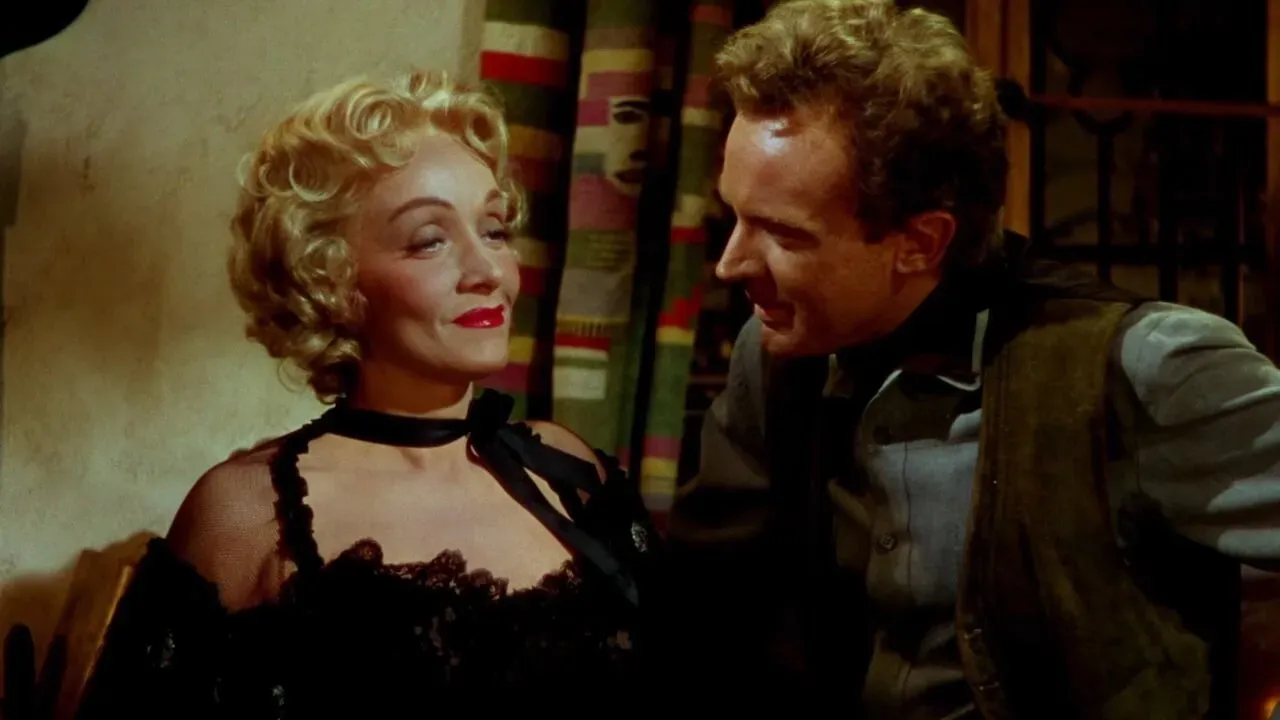Fritz on Fridays: Rancho Notorious
The final 15 minutes of Rancho Notorious are spectacular.

On the first Friday of every month, this column by critic Joshua Polanski will feature a short review or essay on a film directed by Fritz Lang (1890-1976), the great Austrian “Master of Darkness.” Occasionally (but not too occasionally), Fritz on Fridays will also feature interviews and conversations with relevant critics, scholars and filmmakers about Lang’s influence and filmography.
Fritz Lang spent his career bringing other people’s screenplays to life. Even the ones he has writing credits on more often than not began with the ink of another’s pen. He also, particularly in his American years, was rarely with a project from the moment a studio green-lit a film through its premiere. He would often enter projects as a hired hand, a director for a movie in need of a director. Rancho Notorious, the third of Lang’s three Westerns, was one of the two films he made during his entire Hollywood period that are, more or less, fully his from start to finish. (The other film, for those curious, would be Hangmen Also Die!)
The original story begins with Western screenwriter Silvia Richards’ Gunsight Whitman, and while acknowledging Richards’ contributions to Rancho shouldn’t be erased, the process of turning her script into a film was very much Lang’s from beginning to end. According to one account, “Richards had acted as a stenographer for the director’s ideas; she was certainly modest about her contribution, transferring all rights to the director for one dollar on September 13, 1949.” Lang’s authorial ownership over the work is especially notable compared to the two previous Westerns, where Lang had little creative input as discerned by film historian Nick Smedley. Lang worked out a treatment that he sent to Hollywood newcomer Daniel Taradash to finesse into a screenplay. Lang may have disputed the claim that Rancho was fully his because of how much he despised producer Howard Welsch’s meddling in the final cut and adding the cheesy riding-into-the-sunset ending. If it were fully and unadulteratedly Langian, after all, the name would be a cutesier The Legend of Chuck-a-Luck and not the more envious Rancho Notorious.
When store robbers rape and murder Beth Forbes (Gloria Henry), it sets her heretofore happily engaged fiancé, Wyoming rancher Vern Haskell (Arthur Kennedy), on a quest to bring her assailants to justice. Vern finds one of the two murderers dying in the wilderness, left for dead by the other, and pulls the words “Chuck-a-Luck” out of him before he goes. Chuck-a-Luck, Vern finds out, is a place of legends, enshrined in song and with a whole mythology behind the leading lady and owner of the establishment, Altar Keane (Marlene Dietrich, in her last true star role). Her name is only one letter away from “Alter,” the German word for “old” or “old man” and that’s fitting because Dietrich plays an aging yet fierce matron. Chuck-a-Luck is a horse ranch and saloon turned into a full-on criminal establishment, with Altar playing a maternal and mafia-boss role for the masculine underlings biding her dirty work. They operate by strict rules: Don’t ask questions, listen to Altar and only dead men cross the rules.
Continue reading at the Midwest Film Journal.